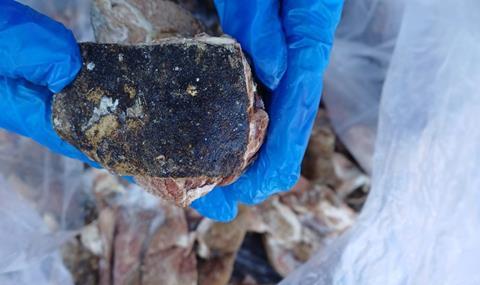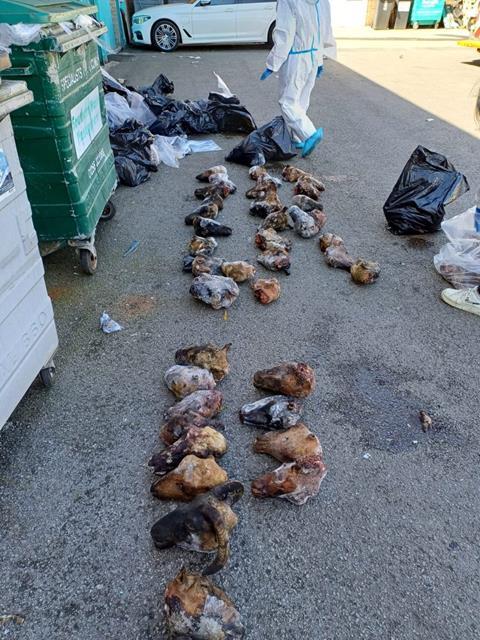Two businesses based in Reading have been ordered to pay over £6,000 in costs after Council Environmental Health officers discovered a significant amount of illegal meat products at the premises posing "a serious risk to health".

Jensiama Enterprises Limited, and Kingdom Family Limited, both based at 55 Milford Road, Reading, were visited on 30th April 2024 by Environmental Health Officers (EHOs) from the Public Protection Service at the Council. During the visit, the officers came across an estimated 400kg of meat products in unlabelled black bin bags stored in a walk-in freezer in the warehouse.
Among the items discovered were 172 sheep heads, two large bags of smokies cutlets, and one small sheep leg joint.
According to a report by Reading Borough Council, smokies are a traditional delicacy in many West African countries, where sheep or goat meat is scorched with a blowtorch, giving it a smoked flavour. In the UK, the production or sale of smokies is prohibited under the Food Safety and Hygiene (England) Regulations as "there is no safe way to produce them without the potential for E-coli and Salmonella being introduced into the meat."
Additionally, the heads and spinal cords of sheep over 12 months must be removed to prevent the risk of Transmissible Spongiform Encephalopathy.
"Whilst the vast majority of food outlets in Reading uphold high standards, the Council takes violations such as this incredibly seriously."
In this case, Reading Borough Council noted that none of the food products found possessed the approved Health or Identification marks, and all were unskinned with the fur remaining. Officers also discovered that a number of the sheep heads were found scorched, and several had large horns and adult teeth, indicating they were above the age limit of 12 months.
The businesses were unable to provide any invoices from the suppliers when asked for them by Council officers, despite full ‘farm to fork’ traceability for meat being a legal requirement.
In total, 21 large refuse bags of illegal meat products were seized from Jensiama Enterprises Ltd. and Kingdom Family Ltd.

At a hearing at Reading Magistrates Court on Friday 10th May 2024, justices signed the Condemnation of Food Order. The seized products were classed as high-risk, Category 1 food waste and were ordered for destruction.
Environmental officers returned on Wednesday 22nd May 2024 to deal with a large quantity of untraceable offal and unlabelled meat in refuse sacks. The businesses voluntarily surrendered a further 23 bags and a large barrel of frozen meat products. This consisted mainly of offal, a further five sheep heads and some unlabelled meat.
Again, no labels with Identification marks and no invoices could be provided for the meat products for traceability. These were also sent for destruction by an approved animal waste disposal company.
Swift and decisive action taken
Councillor Ruth McEwan, Lead Councillor for Education and Public Health, said: “This case again demonstrates the Council’s ongoing commitment to protecting our residents and visitors from dangerous and inexcusable breaches of food hygiene standards and ensuring a level playing field for our legitimate businesses.
“Whilst the vast majority of food outlets in Reading uphold high standards, the Council takes violations such as this incredibly seriously. I want to thank our officers for their swift and decisive action to seize these food products to prevent them from reaching a customer’s dinner table.
“We want to emphasise that enforcement action will be taken where there is no documentation to prove where food has come from. We remain vigilant against potentially unsafe food and all food businesses must be able to provide a clear audit trail of where produce has come from.”















